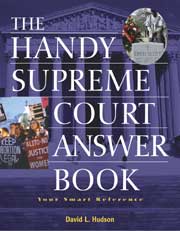President of the Day
Consumer advocacy's roots can be traced to investigations started by which president?
- He preceded Nader's Raiders.
- He had read Upton Sinclair's The Jungle.
- He investigated meat plants as a result.
- He passed the Pure Food and Drug Act and the Meat Inspection Act.
 Theodore Roosevelt
Theodore Roosevelt
While Nader may be the most recognizable face of consumer advocacy, the movement's roots predate his activism. As the consumer age dawned at the end of the 1800s and early 1900s, when mass-production techniques came into wide use, some observers decried industry standards (or lack thereof) that put the public who used their products at risk. The muckraking journalists of the early twentieth century disclosed harmful or careless practices of early industry, raising awareness and bringing about needed reforms. Upton Sinclair (1878-1968), for example, penned the highly influential novel The Jungle (1906), revealing scandalous conditions of meat-packing plants. The public was outraged; upon reading Sinclair's work, President Theodore Roosevelt (1858-1919) ordered an investigation. Finding the novelist's descriptions to be true to life, government moved quickly to pass the Pure Food and Drug Act and the Meat Inspection Act that same year (1906). Industry watchdogs continued their work in the early decades of the century: In 1929 Consumers' Research Inc. was founded, and in 1936, the Consumers Union was formed; both of these independent organizations test and rate consumer products. (Consumers Union publishes its reports in the monthly magazine Consumer Reports.)
Such consumer advocacy has served to heighten public awareness, compelling industry to make changes and improving the safety of products in general. Abuses still occur, but at roughly 100 years into the consumer age, the work of consumer watchdogs like Nader's Raiders has made the consumer experience far less risky than it once was.
Nadar's Raiders were (and are) investigators working with American lawyer and consumer advocate Ralph Nader (1934-). With the help of his research team, Nader wrote the landmark work Unsafe at Any Speed in 1965; it charged that many automobiles weren't as safe as they should be or as consumers had the right to expect them to be. In part the book was responsible for passage in 1966 of the National Traffic and Motor Vehicle Safety Act, which set motor vehicle safety standards. Nader has continued his watchdog work, founding the Public Citizen organization, which researches consumer products, promotes consumer awareness, and works to influence legislators to improve consumer safety.
From The Handy History Answer Book by Rebecca Ferguson, (c) 2005 Visible Ink Press(R) More than a thousand questions explore a cast of thousands, including Socrates, an early advocate of the question-and-answer format.
| < Previous Fact | Next Fact > |
Dig deeper with these related titles:
 |
The Handy Presidents Answer Book Second Edition A complete look at every Presidents' who, what, when, where, why, and, how . . . Offering an engaging overview of the U.S.... Read More » |
|
 |
The Handy History Answer Book, 2nd Edition All things must pass. In an understatement of historic proportions, quite a few things have passed since the end of the last millennium, when The... Read More » |
|
 |
The Handy Supreme Court Answer Book What's arguably the Supreme Court's most controversial decision? Which Justices signed the Declaration of Independence? How much do you really know... Read More » |
|
 |
The Handy Politics Answer Book In these politically charged times, interest in the political process is peaking. From the national election debacle in Florida to 9/11 to... Read More » |





